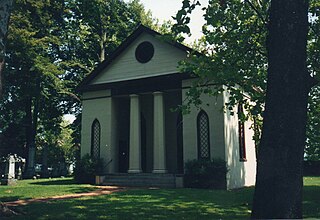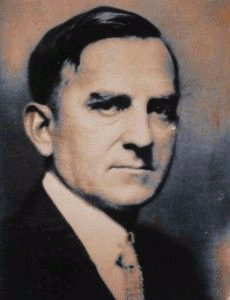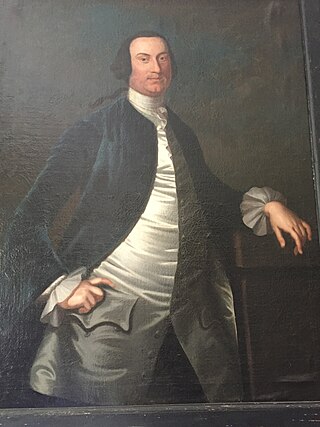
Caroline County is a United States county located in the eastern part of the Commonwealth of Virginia. The northern boundary of the county borders on the Rappahannock River, notably at the historic town of Port Royal. The Caroline county seat is Bowling Green.

Port Royal is an incorporated town in Caroline County, Virginia, United States. The population was 126 at the 2010 census.

Falmouth is a census-designated place (CDP) in Stafford County, Virginia, United States. Situated on the north bank of the Rappahannock River at the falls, the community is north of and opposite the city of Fredericksburg. Recognized by the U.S. Census Bureau as a census-designated place (CDP), Falmouth's population was 4,274 as of the 2010 census.

The Rappahannock River is a river in eastern Virginia, in the United States, approximately 195 miles (314 km) in length. It traverses the entire northern part of the state, from the Blue Ridge Mountains in the west where it rises, across the Piedmont to the Fall Line, and onward through the coastal plain to flow into the Chesapeake Bay, south of the Potomac River.

William Fitzhugh was an American planter, legislator and patriot during the American Revolutionary War who served as a delegate to the Continental Congress for Virginia in 1779, as well as many terms in the House of Burgesses and both houses of the Virginia General Assembly following the Commonwealth's formation. His Stafford County home, Chatham Manor, is on the National Register for Historic Places and serves as the National Park Service Headquarters for the Fredericksburg and Spotsylvania National Military Park.

Romeyn Beck Ayres was a Union Army general in the American Civil War.

Fredericksburg and Spotsylvania National Military Park is a unit of the National Park Service in Fredericksburg, Virginia, and elsewhere in Spotsylvania County, commemorating four major battles in the American Civil War: Fredericksburg, Chancellorsville, The Wilderness, and Spotsylvania.

Augustine Washington Sr. was an American planter and merchant. He was the father of the first president of the United States, George Washington. Born into the planter class of the British colony of Virginia, Washington owned several slave plantations, from which he derived the primary source of his wealth. He also speculated in land development and owned an iron mine. Although Washington never sat in the House of Burgesses, unlike his father and son, he served in various government positions in the counties where he owned land.
William Fitzhugh Gordon was a nineteenth-century, lawyer, military officer, politician and planter from the piedmont region of Virginia.

John Lee Pratt was an American industrialist born on the county line of Stafford and King George County, Virginia. He received an engineering degree from the University of Virginia, entered the ranks of American business executives in two major U.S. corporations, and later purchased and helped preserve historic Chatham Manor in Stafford County, Virginia which, upon his death, he gave to the National Park Service.

Alexander Swift Pendleton was an officer on the staff of Confederate Generals Thomas J. Jackson, Richard S. Ewell and Jubal A. Early during the American Civil War.

Colonel John Tayloe II was the premier Virginia planter; a politician, and colonial Colonel in the Virginia Militia. Virginia. He served in public office including the Virginia Governor's Council, also known as the Virginia Council of State.

Eugenia Scholay Washington was an American historian, civil servant, and a founder of the lineage societies, Daughters of the American Revolution and Daughters of the Founders and Patriots of America.
[George] French Strother was an eighteenth-century planter, politician, lawyer and judge in Virginia, nicknamed "the Fearless" for his fiery rhetoric during debates in the American Revolutionary War.
William Beverley (1696–1756) was an 18th-century legislator, civil servant, planter and landowner in the Colony of Virginia. Born in Virginia, Beverley—the son of planter and historian Robert Beverley, Jr. and his wife, Ursula Byrd Beverley (1681–1698)—was the scion of two prominent Virginia families. He was the nephew of Peter Beverley (1668–1728), Speaker of the Virginia House of Burgesses, and the grandson of wealthy Virginia planter William Byrd I (1652–1704) of Westover Plantation. Beverley's mother died shortly before her 17th birthday, and he was sent to England.
Wellington Gordon was an American planter, politician, and educator. He inherited an estate in Virginia and served a term as a member of the Virginia General Assembly. He subsequently moved to California after the end of the American Civil War.
The 10th Pennsylvania Reserve Regiment also known as the 39th Pennsylvania Volunteer Infantry was an infantry regiment that served in the Union Army as part of the Pennsylvania Reserves infantry division during the American Civil War.
Battery "B", 4th Regiment of Artillery was a light artillery battery that served in the Union Army during the American Civil War.
Alexander John Marshall was a Virginia lawyer, businessman and politician who served many years as Clerk of Fauquier County, helped secure construction of the Rappahannock Canal, and was a Virginia state senator during the American Civil War (1862–1865).













